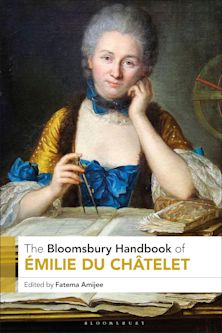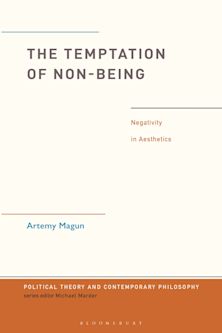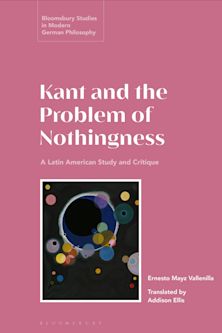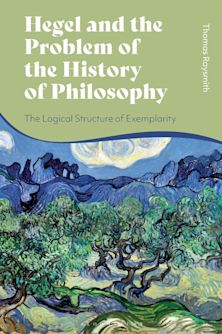Over-Measure in Kant, Hegel, and Shakespeare
Putting the Principles Into Play
Over-Measure in Kant, Hegel, and Shakespeare
Putting the Principles Into Play
Description
In Over-Measure in Kant, Hegel, and Shakespeare: Putting the Principles Into Play, four Shakespeare plays become the experiential-dramatic playground where operations of “principled virtues” and their informing categories are meticulously tested.
Jennifer Ann Bates begins with Hegel's logic of measure and Shakespeare's Measure for Measure, showing essential measure is indeterminable. She then combines Kant's Pure Principles of the Understanding with Shakespearean Roman tragedy, exploring principles of measure through over-measure. Bookended by Hegel's Phenomenology of Spirit, she investigates over-measures of quantity in Antony and Cleopatra, quality in Titus Andronicus, and relation and modality in Julius Caesar.
She turns to Kant for epistemic measures that make experience possible, highlighting his warnings against exceeding those limits. Putting Kant's Principles into play produces “principled virtues,” which are epistemic principles made practical and differ from Kant's Doctrine of Virtues, not just from Aristotle's virtues. Read through Shakespeare's plays, principled virtues are tragic: they miss the mark, and they are executed in both senses. The reason is that their over-measures are not grasped dialectically. The author finds a solution in Hegel's Phenomenology of Spirit, which she calls his book of over-measures. In it, Hegel reveals the necessity of overmeasures in experience, thus providing the measure for measure.
Table of Contents
Preface
Acknowledgments
List of Abbreviations
Introduction
Chapter 1: Hegel and Shakespeare on the Measure for Measure: The Hangman's Mystery
Chapter 2: Over-Measuring the World: The Principle of Quantity in Kant and Shakespeare's Antony and Cleopatra
Chapter 3: Principled Virtue in Antony and Cleopatra: Celerity
Chapter 4: Principled Virtues of Generosity and Duty, and Remarkable Over-Measure in Antony and Cleopatra
Chapter 5: Over-Measures of Quality in Shakespeare's Titus Andronicus: Tomb, Hue, Emanation, the Mark, and the Principled Virtue of Purity
Chapter 6: Over-Measures of Quality in Titus Andronicus: Revenge Caves and The Principled Virtue of Confidence
Chapter 7: Over-Measures of Substance in Shakespeare's Julius Caesar: The Principled Virtue of Leadership
Chapter 8: Over-Measures of Causality in Julius Caesar: Succession and the Soothsayer (Ambiguous Generation)
Chapter 9: Over-Measures of Coexistence in Julius Caesar: Monstrosities and the Narcissism of the Void
Chapter 10: Over-Measures of Modality in Kant and Julius Caesar: Possibility and the Axis of Meaning in Augurs and Dreams
Chapter 11: Over-Measures of Modality in Kant and Julius Caesar: Actuality in the “Refutation of Idealism” and in the Execution of the Deed; The Principled Virtue of Commitment
Chapter 12: Over-Measures of Modality in Kant and Julius Caesar: Necessity and the Principled Virtue of Freedom
Chapter 13: Hegel's Book of Over-Measures, The Phenomenology of Spirit: is its Method a Principled Virtue? Dialectical Necessity in Solger's Tragic Irony vs. in Hegel's Begriff, and Hegel's Celebration of Shakespearean Imagination
Appendix: Further Reading
Bibliography
Index
About the Author
Product details

| Published | Nov 13 2025 |
|---|---|
| Format | Ebook (PDF) |
| Edition | 1st |
| Extent | 320 |
| ISBN | 9798216201434 |
| Imprint | Bloomsbury Academic |
| Series | Contemporary Studies in Idealism |
| Publisher | Bloomsbury Publishing |
Reviews

ONLINE RESOURCES
Bloomsbury Collections
This book is available on Bloomsbury Collections where your library has access.


































